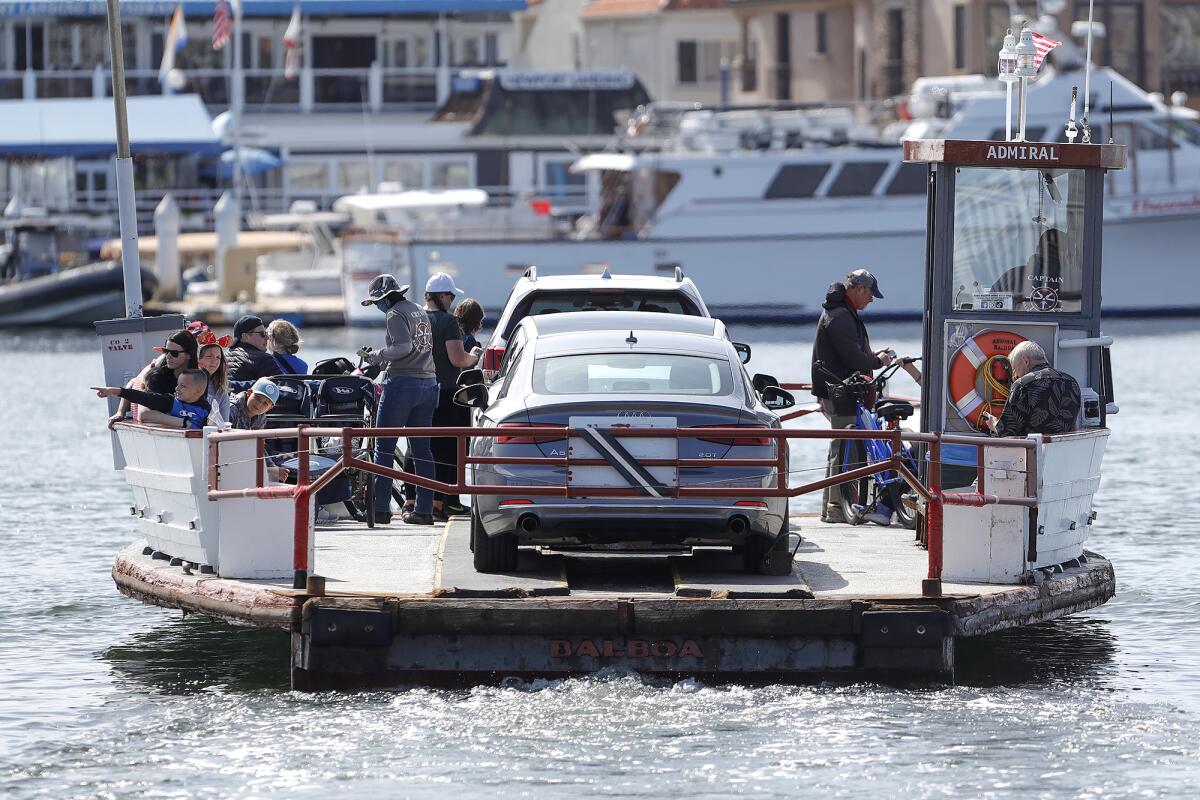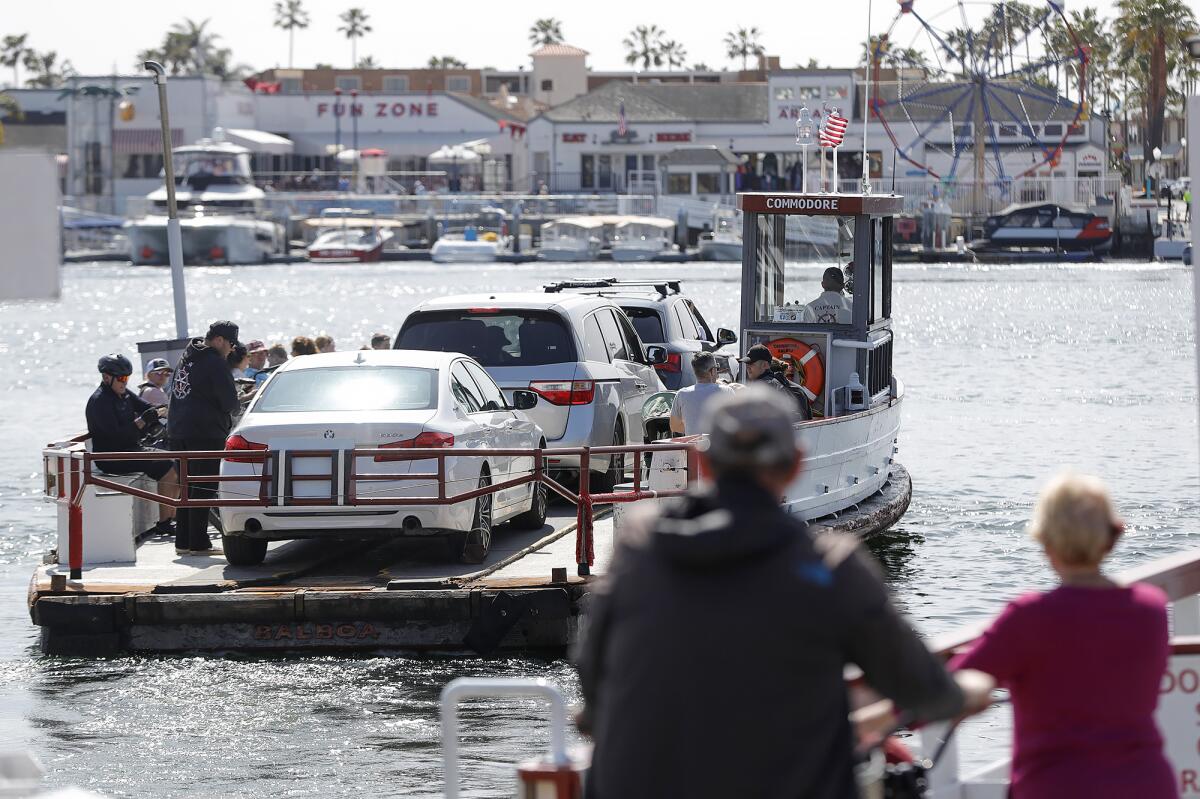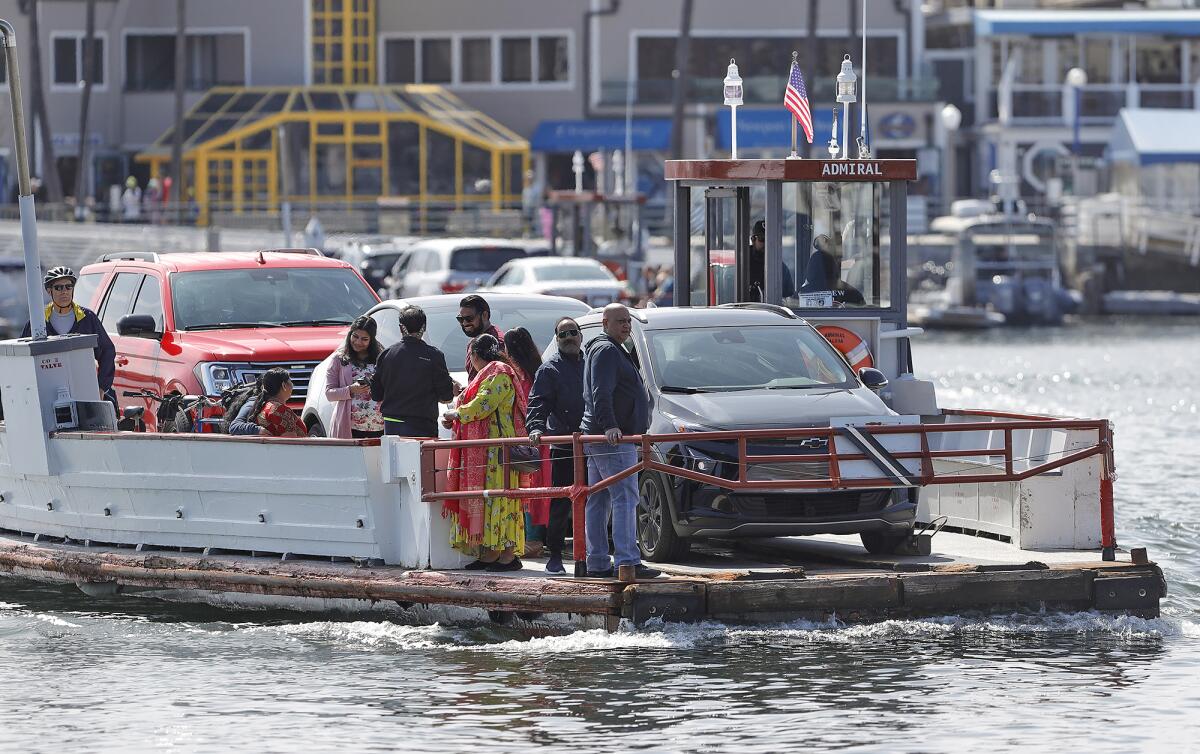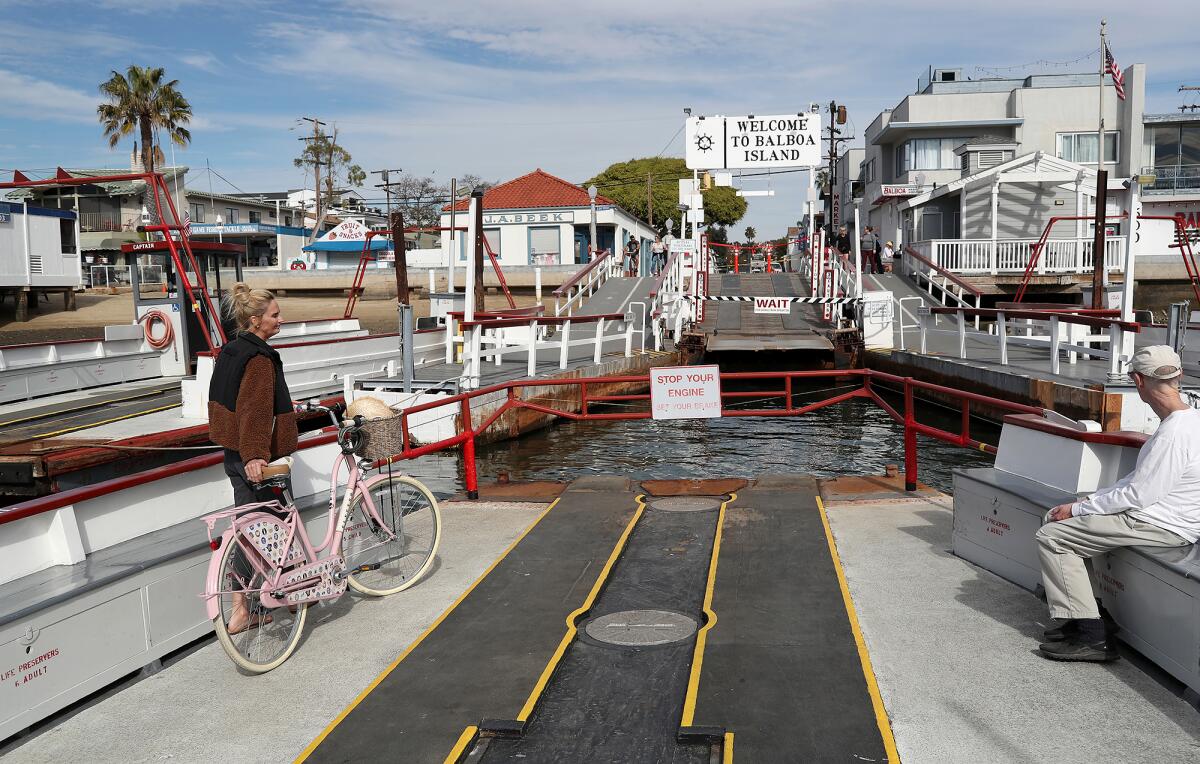Balboa Island Ferry may sink, not swim if engine conversions can’t be made

- Share via
The Balboa Island Ferry has operated in Newport Beach since 1919, but a new mandate handed down by the California Air Resources Board has placed its future, for the first time in little over a century of operation, up in the air.
In December, the state board, which aims to attain and maintain air quality, implemented new regulations that require commercial harbor craft — defined as crew and supply boats, fishing vessels, ferries, excursion vessels and the like — to start using renewable diesel fuel this year and begin the process of replacing their engines to reduce emissions and health risks from ports and the movement of goods up and down the state.
Short-run ferries, like the Balboa Island Ferry, are required to use zero-emission engines by the end of 2025.
It’s an admirable intent but one that’s easier said than done, according to Seymour Beek, who operates the ferry business, while his son, David, runs the Balboa Island Fuel Dock, which started operations in 1936.
The elder Beek said they’ve been aware of the possibility they would need to convert the engines of their three boats for at least two years, though it wasn’t official until the California Air Resources Board accepted the recommendations of its staff last year. With a ticking deadline now a little under two years to retrofit and replace, Beek said the cost to convert is astronomical.

“We just can’t afford it,” he said. “It’s $2.5 million to convert the first boat — to do the engineering and design — if it can even be done. The feasibility of it has yet to be proved. We’re not sure we can do it because of our cramped space and so on. Everybody talks about the funding that’s available, but we haven’t found it yet.”
Beek said the business has retained a consultant to help search for ways to fund the conversion, but they haven’t had much luck so far.
“We’re a business that, for the first time, exceeded $2 million in 2022. We don’t make a profit. Some years, we don’t make any profit. Expecting us to spend $2.5 million on the first boat and each boat after, $1 million, plus putting in the battery charging stations on shore ... is probably another half a million,” he continued. “It’s just out of our ballpark. We can’t do it. If something doesn’t give, we’re out of business.”
That’s bad news, not just for the Beeks or their staff of 40 or so employees but for the residents and tourists that come for the ferry, said Visit Newport Beach’s president and chief executive officer Gary Sherwin in a recent call.
“There’s certain attractions in a lot of communities. The Queen Mary in Long Beach, right? You can’t imagine Long Beach without the Queen Mary, and it’s the same thing with our little ferry,” Sherwin said. “It’s been there since 1919. It’s a major attraction. It’s part of our brand as a city. It’s a cultural touch point to our history. It’s locally owned by a family that is taking care of it from its very first day.”
Hundreds of Newport residents, Beek wagers, have probably worked on the ferry. If it were to cease operations, he said, it’s possible that businesses in Balboa Village and on Balboa Island would be negatively affected.

Sherwin said he heard about the issue from state Assemblywoman Diane Dixon earlier this month and then spoke to Beek, who explained the situation.
“It’s inconceivable that we could have Newport Beach without the Balboa ferry. Not only would it be heartbreaking but, from a visitor attraction perspective, it would be a major loss. That’s why we’re getting involved and putting energy into getting a resolution on this,” Sherwin said, adding that he recently had a meeting with California Air Resources Board chair Liane Randolph on the issue.
Board spokeswoman Lynda Lambert confirmed that Sherwin and Randolph spoke briefly on the matter and that Randolph shared his concerns with staff.
“Staff has met with Balboa Island Ferry and is open to continuing to meet with them to discuss available funding and what extension options are possible under the current regulation,” Lambert said in an email Wednesday.
Dixon said she was apprised of the situation in February and that “her jaw dropped” when she realized how similar the issue with the Balboa Island Ferry was to a previous matter involving commercial fishing boats back when she was serving on the Newport Beach City Council. Dixon said they managed to successfully get an exemption to push the deadline for conversions back then and hopes the same result will be possible for the ferry, which she described as iconic.
Losing the ferry, she said, would not only be like losing a family member but would also hurt the local economy, as the ferry has also intertwined tourism while providing low-cost, visitor-serving amenities in accordance with the state Coastal Commission.
“His current diesel engines have consistently met all state environmental requirements, so this isn’t an issue of him avoiding conversion,” Dixon said in a call Tuesday afternoon. “... the technology just doesn’t exist [for boats of the Balboa Island Ferry’s size]. It just does not make sense in my mind that he has to comply or go out of business as of Dec. 31, 2025.”

In response, she and Beek have been working on solutions alongside Sherwin with the hope that a resolution could be reached between advocates and the regulatory board to preserve the ferry. Dixon said she plans, in the next year, to introduce a bill to try and protect the ferry as Sherwin and Beek hope to increase public awareness about the situation.
“Let’s save the Balboa Island Ferry,” Dixon said.
All the latest on Orange County from Orange County.
Get our free TimesOC newsletter.
You may occasionally receive promotional content from the Daily Pilot.








